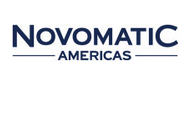
When the state of Arkansas expressed an interest in legalized casino gambling, it came as no surprise that the Quapaw and Cherokee Indian Nations of neighboring Oklahoma would finance the ballot initiative that got the industry up and going.
When MGM Resorts International built a $1 billion hotel casino in Springfield, Massachusetts, near the border with Connecticut, it made perfect sense for the Mohegan and Mashantucket Pequot tribes to pursue a competing project in East Windsor.
And when the Poarch Band of Creek Indians sought an investment opportunity to capitalize on its casino resort and entertainment interests in Alabama, the tribe’s Wind Creek Hospitality invested $1.3 billion in Sands Casino Resort Bethlehem in Pennsylvania.
“We’ve proven ourselves when it comes to gaming and hospitality,” says Robert McGhee, vice chairman of the Poarch Band, which operates three hotel casinos in Alabama and more than a dozen non-gambling hotels in the Southeast and Caribbean Islands.
American Indian tribes are parlaying skills and experience gained through 30 years of operating tribal government casinos on Indian lands with a growing list of commercial casino ventures in the United States and overseas.
Rather than operating casinos under the Indian Gaming Regulatory Act (IGRA) of 1988, which exempts tribes from state taxes and allows them primacy in regulating their gambling operations, tribes are wading into the commercial gaming sector.
The move off the reservations is to be expected. With the growth of the $32.4 billion tribal casino industry to some 500 gambling operations in 29 states, opportunities on Indian lands have dissipated.
“With some exceptions, the Indian gaming market is fully developed,” says Bryan Newland, chairman of the Bay Mills Indian Community of Michigan and a former counsel with the Department of the Interior. “There are tribes seeking to become new entrants into the gaming market. But by and large, most federally recognized tribes that want to engage in gaming are already doing it.”
Opportunity Knocks
About 250 of 370 tribes in the lower 48 states operate reservation casinos. Another 80 or so receive funds from tribal casinos or lease machines. Others are too remote or lack land upon which to build casinos.
“Most of the opportunities in Indian Country have already been developed,” agrees Kristi Jackson, chairman of TFA Capital Partners, an investment banking firm servicing tribal and commercial gambling and leisure industry clients. “It’s more difficult to get land into trust, the regional markets may already be saturated and the spread of commercial gaming is making things less advantageous. There are fewer opportunities.”
The Cherokee Nation of Oklahoma purchased commercial racetracks in Oklahoma and Texas.
Mohegan Gaming & Entertainment, an enterprise of the Mohegan Tribe of Connecticut, owns and/or operates Resorts International in Atlantic City, Mohegan Sun Pocono Race Track and Casino in Pennsylvania and tribal hotel casinos in Washington state and Louisiana. It also is partners in the development of Project Inspire, a gambling resort in South Korea.
Tribes are also outsourcing management expertise and investing in partnerships with other tribes seeking the remaining opportunities in Indian Country.
The Seminole Tribe of Florida, owners of the multibillion-dollar Hard Rock International, operates the former Trump Taj Mahal in Atlantic City and is in partnership with the Menominee Tribe of Wisconsin, Enterprise Rancheria of California and others.
The Chickasaw Nation is financing the 42,000-square-foot Golden Mesa Casino being built by the Loyal Shawnee in the Oklahoma Panhandle near Guymon.
Expanding their gambling interests beyond Indian lands is also part of efforts by tribes to diversify their economies.
“I think there’s going to be more tribes buying gaming assets,” Jackson says. “I also think there’s going to be more tribes buying real estate and businesses related to what they’ve been successful doing. There is a need in most cases to look beyond the boundaries of the reservation and do things that will diversify their economy.
“Tribes may go far afield from what they’ve been doing, from gravel operations to construction management to other kinds of businesses that are not related to hospitality or entertainment,” she says. “We’re working with several tribes, actively. And the common thread is the realization that they have grown as far as they can with gaming on the reservation.
“I will say an absolute trend is the diversification away from home-based gaming.”
Confronting Competition
Tribal commercial casino efforts in Arkansas, Connecticut and elsewhere are partly intended to confront or prevent potential competition.
Such is the case with the Quapaw and Cherokee Nation efforts in Arkansas, which last year passed a ballot initiative to legalize four commercial casinos, two at existing racetracks and two others in Pope and Jefferson counties.
Quapaw’s Downstream Casino Resort enterprise and the Cherokee Nation’s Cherokee Nation Businesses (CNB) operate tribal government casinos along the East Oklahoma border with Arkansas.
“Their goal and part of my goal was to protect the western side of the state of Arkansas from expanded gambling, which would encroach on the market of Downstream Casino Resort and the Cherokee Nation,” Quapaw Chairman John Berrey says.
Berrey says the Quapaw also wanted to invest in the tribe’s ancestral lands in Jefferson County.
“Our strategy is to try and get back to where we’re from,” Berrey says. “It’s a mandate from the tribe to get back home.”
The Cherokee Nation, forced out of its ancestral lands in the Carolinas in the 1800s, hopes to expand its market.
“Arkansas, being an adjacent state, would be a logical extension of our operations here in Oklahoma,” says Chuck Garrett, vice president of CNB, the economic arm of the tribal government with gambling, health care, aerospace, technology and other enterprises.
The two tribes contributed more than $6 million to the initiative campaign. Arkansas citizens in November voted 54 percent to 46 percent to adopt Ballot Issue 4, a constitutional amendment allowing four casinos in the state.
Quapaw’s Downstream Development Corporation is looking to open a casino and 12-story hotel in Pine Bluff, in Jefferson County, as early as 2020.
The Quapaw casino would offer all gambling options, including a sports book, but Berrey says sports wagering is not a major focus of casino operation because it has a low profit margin.
The Cherokee Nation, meanwhile, has aspirations of building a casino resort near Russellville in Pope County, not far from where the tribe operates nine casinos in northeast Oklahoma. The tribe failed in attempts to get an initiative on the 2016 ballot.
Developing a casino in Pope County may be problematic.
Pope County voters approved an ordinance requiring county officials to hold a referendum before issuing letters of support for a casino. The ordinance is likely to be challenged in the courts.
The tribe also faces competition. Gulfside Casino Partnership, operator of a hotel-casino in Gulfport, Mississippi, is seeking state approval of a $250 million resort in Russellville.
“We are excited to make a significant economic investment in the Arkansas River Valley with this first-class resort,” Terry Green, co-owner of Gulfside, said in a press release.
“This project will create more than 1,500 new jobs and generate millions of dollars in taxes, improving the county’s infrastructure and its overall quality of life.”
Cherokee leaders fear a commercial operation would seriously impact business.
“A significant portion of our market originates in northwest Arkansas, and if an operator other than Cherokee Nation was to gain a foothold, that would threaten jobs at Cherokee casinos,” CNB CEO Shawn Slaton told the Cherokee Phoenix newspaper.
“It could also decrease, for the first time ever, revenue that ultimately funds health care, housing, education and other tribal services,” Slaton says. “CNB will always go to whatever lengths necessary to protect Cherokee jobs and not only preserve, but continue to increase the dividend paid to the Cherokee Nation, which funds critical services for Cherokee Nation citizens.”
Tribal War with MGM
The Mohegan and Mashantucket Pequot tribes of Connecticut have similar concerns about MGM Grand’s $1 billion facility in Springfield, Massachusetts.
The casino entertainment company has lobbied heavily against the tribes’ efforts to develop a commercial casino in East Windsor to prevent the state from losing jobs and revenue to the Springfield resort.
Tribes have assured state officials the East Windsor project would not impact tribal-state casino regulatory compacts that pay the state 25 percent of their slot revenues, or more than $270 million for the last two years.
But MGM has lobbied the Department of the Interior and the Trump White House, stalling the East Windsor project. MGM officials contend the East Windsor project, along with a proposal to establish another casino in Bridgeport, should be open to public bidding.
Now that former Interior Secretary Ryan Zinke has resigned, tribal leaders expect the approvals could be finalized.
State Senator Cathy Osten has submitted a bill, co-sponsored by other legislators, that would eliminate the need for federal approval of the East Windsor project, newly titled “Tribal Winds.”
The tribes say the casino—estimated to cost $250 million to $300 million—would open 18 to 24 months after construction begins and generate $75 million annually in state revenue.
“We’re ready to go when you are,” Mohegan tribal Chairman Kevin Brown told a legislative committee in January. Brown stepped down from his position in February, but remains on the tribal council.
A Problematic Process
As a concession to states, the commercial casino industry and anti-gambling interests, authors of the Indian Gaming Regulatory Act (IGRA) largely limited casinos to tribal lands in existence when the act was passed by Congress in 1988.
But the federal law did allow Section 20 exemptions for newly recognized and restored tribes and property acquired in a federal lands claim. The exemptions were intended to provide “equal footing” for tribes not eligible for gambling when the act was passed.
IGRA also allows tribes to develop casinos on trust land off existing reservations, a process referred to as “two-part determinations” because it requires approval from the governor and proof a casino is in the best interest of the tribe and not harmful to nearby Indian and non-Indian communities.
But getting approval from Interior and the Bureau of Indian Affairs under any Section 20 exemption is a long and expensive endeavor, often fraught with politics and likely to result in years of litigation.
“It’s a high bar to clear,” says Newland. “You have to incur millions of dollars of expense to compile the material needed to get through the bureaucratic process. Then if you get a favorable decision, there’s the legal cost to defend the decision in court.
“The process has become very difficult.”
The process grew more complex with the 2009 U.S. Supreme Court ruling in Carcieri v. Salazar, which limited Interior’s authority to place land in trust for tribes.
Justices in Carcieri ruled that Interior could not place land in trust for tribes not “under federal jurisdiction” with enactment of the Indian Reorganization Act of 1934.
Justices, however, did not define “under federal jurisdiction,” giving anti-gambling groups and tribes opposed to new competition legal ammunition to contest Section 20 petitions.
Carcieri caused a lengthy and expensive bureaucratic process to drag on even longer and become even more costly.
“The opposition from existing tribal casinos was not anticipated, nor was Carcieri,” says attorney Alex Skibine, who served as deputy counsel for the House Committee on Interior and Insular Affairs when IGRA was drafted.
The Supreme Court ruling in Carcieri allows opponents to question whether Interior has the authority to place land in trust for gambling.
Congress has rebuffed efforts to enact a legislative “fix” to the Supreme Court ruling in Carcieri.
“The problem is not with IGRA,” tribal attorney Judith Shapiro says of the difficulty in acquiring land for casinos. “The problem is with Carcieri.”
“The easy ones have already been done,” Shapiro says of the trust land casino development in the early years of IGRA. “There hasn’t been a lot of growth. That’s been true for a long time.”
Pamunkey tribal Chief Robert Gray says he would consider operating a casino in Norfolk, Virginia under commercial law rather than struggle through IGRA’s long, complicated and expensive process.
“As a federally recognized tribe with both the right to engage in gaming activities and the financial backing to make it happen, we believe that if the commonwealth is ready to authorize gaming, our project should be part of it,” Gray said in a statement.
“To consider other projects without taking into consideration the Pamunkey casino in Norfolk and the potential of additional Pamunkey casinos in Virginia would fail to take a much-needed comprehensive approach to gaming.”
Jackson says gambling under IGRA may be problematic, but it still provides opportunity for indigenous Americans, particularly newly recognized, restored and landless tribes.
“There are plenty of examples around the country where the revenues from gaming are providing services tribal members would otherwise not have access to,” Jackson says.
Section 20 projects are becoming a rarity.
“Instead of 20 a year,” she says, “there may be one or two.”
A More United Industry
The nationwide campaign to legalize sports betting aligned the lobby and trade organizations for the commercial and tribal segments of the legal gambling industry, the American Gaming Association (AGA) and the National Indian Gaming Association (NIGA).
Eleven of the larger casino tribes eventually joined the AGA.
While there are significant differences between commercial and tribal government gambling, there are many policy issues that unite the two segments of the casino industry.
“We made a very consequential decision, and we’re not uniting for the sake of uniting,” says NIGA Chairman Ernie Stevens. “We’re uniting because it’s important to our future.”


















